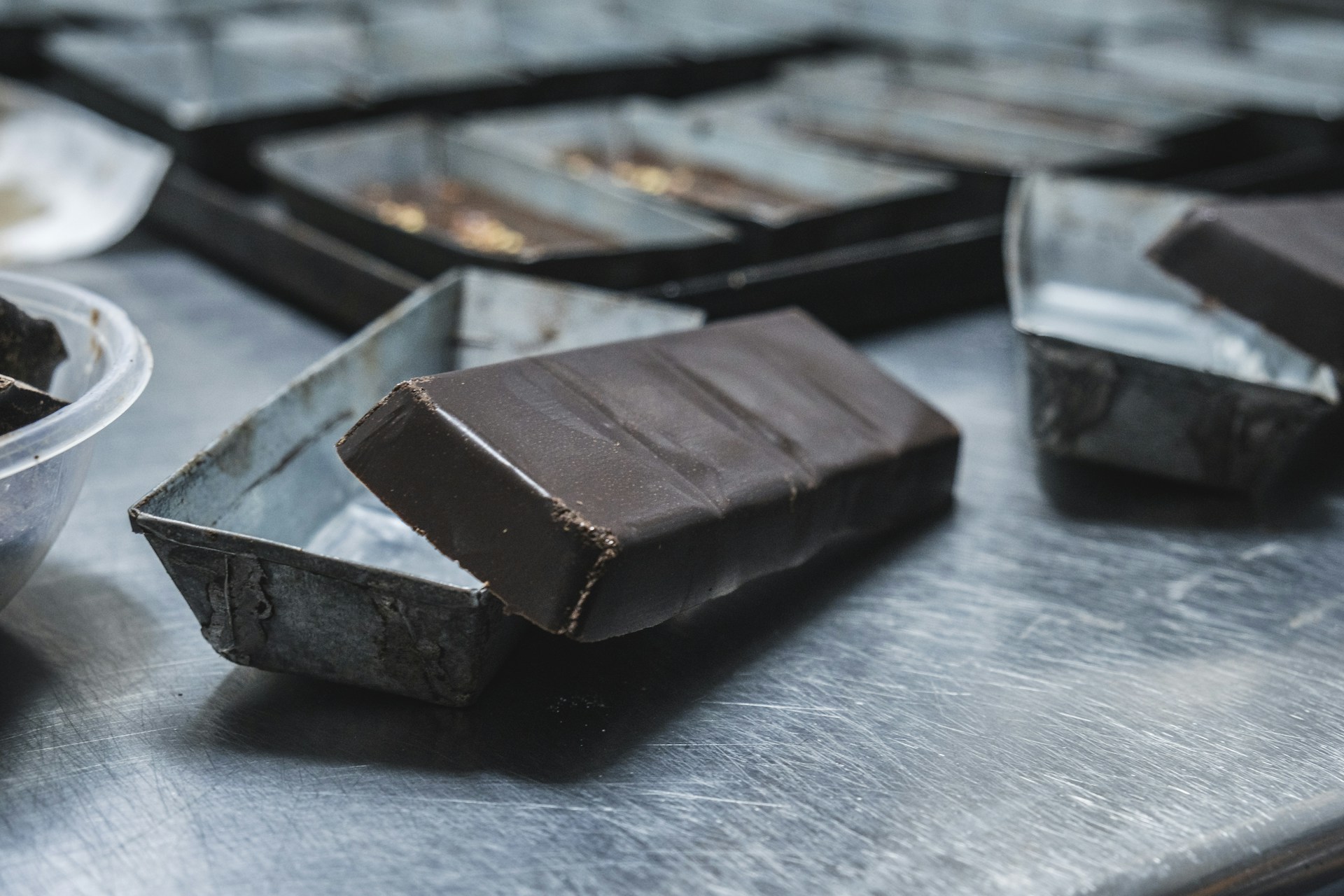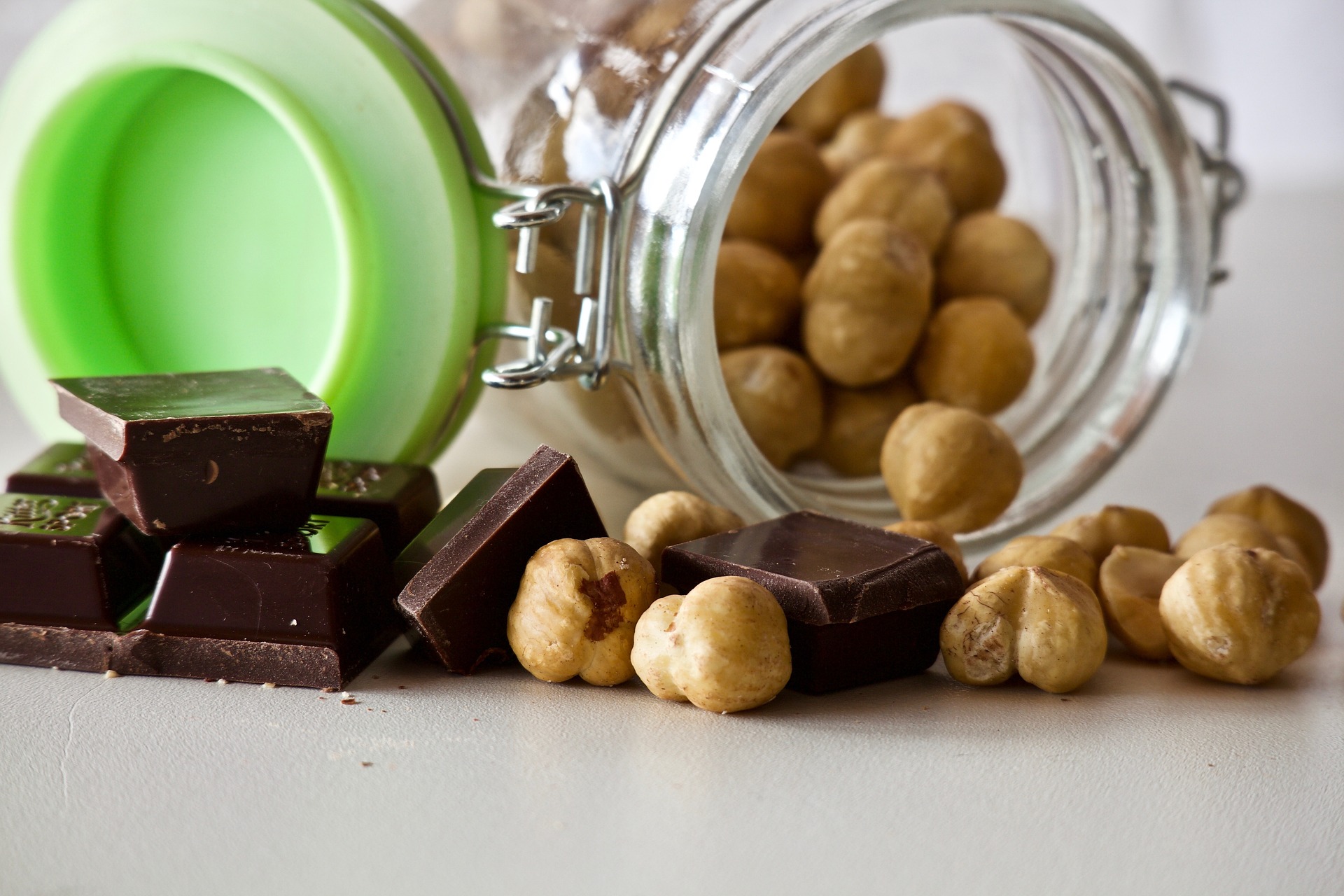Italy, celebrated for its iconic landmarks, diverse landscapes, and exquisite cuisine, harbors a hidden gem – its thriving chocolate industry. Often overlooked amidst the country’s other attractions, Italy stands as one of the world’s leading producers of exceptional chocolates. This reputation is deeply rooted in its chocolate factories, scattered across cities like Turin, Perugia, and Sicily. Among these, Cuneo and Turin are renowned for their sumptuous hot chocolate, while Sicily and Gianduja shine as prominent hubs for commercial chocolates in Europe. The unique cold pressing technique employed in these chocolate factories traces its origins to the 17th century, marking a transformative era for Italy’s chocolate industry. Exploring these chocolate factories in Italy offers a captivating journey into the evolution of this delectable tradition.
Table of Contents
Why Italian chocolates?

The evolution of chocolate in Italy has been remarkable, transitioning from ancient forms to more refined and unique flavors that stand unparalleled globally. The dedicated chocolatiers in the country consistently strive to produce some of the finest chocolates worldwide. If you’re planning a vacation to Italy, rest assured that you’ll have an enjoyable experience, particularly with the numerous chocolate tours available for exploration. These tours play a crucial role in providing insights into Italy’s chocolate scene, adding depth to your understanding of the country.
Read more: Christmas traditions in Italy
When embarking on a vacation to Italy, chocolate enthusiasts are in for a treat as they explore the best the country has to offer in terms of chocolates. While Italian cuisine is already renowned for its exceptional taste, the exploration of chocolate takes it to another level. Tasting and personally visiting chocolate factories become pivotal in determining the true extent of Italy’s chocolate excellence. The rich chocolate-making tradition in Italy spans centuries, ensuring that the chocolates sampled during your trip are nothing short of phenomenal. To enhance your chocolate journey, here are some of the top Italian chocolate factories worth visiting.
Sabadi
One of the largest chocolate companies based in Turin, Sabadi is renowned for its artisanal chocolate production. The company produces a variety of chocolate types, including the Modica style, along with their own range of drinks, milk chocolates, nougats, and bars. A visit to the company provides a firsthand look at their production process, ensuring you experience some of the finest chocolates the region has to offer. Exploring their production methods and sampling their chocolate products offers valuable insights into the company’s craftsmanship.
Perugina
Founded in 1907, Perugina has evolved from a confectionery into one of Italy’s most popular chocolate makers. The artisanal production of chocolate has been a significant factor in the company’s growth. Notably, their Baci Perugina, a gianduja hazelnut covered with chocolates, has become iconic, often packaged with messages. This charming touch has led to a surge in the popularity of their chocolates, making Perugina an excellent choice for gifting. The company’s commitment to traditional production methods ensures a delightful chocolate experience, making it a must-visit for chocolate enthusiasts.
Modica
Hailing from Sicily, Modica chocolate stands out as one of the most popular in Italy. The chocolate-making tradition in Sicily embraces artisanal techniques, passed down through generations. The unique process involves cooking cacao chocolates at a low temperature, preserving the buttery texture and distinct taste. The resulting Modica chocolate boasts a crumbly and gritty consistency, a hallmark of its character. With various flavors like red pepper, vanilla, citrus, coffee, and cinnamon, a visit to Modica offers a diverse and delightful chocolate tasting experience. These chocolates, crafted from carefully sorted cacao beans, are available at the factory and major stores worldwide.
Tipico Barocco
Located in Sicily, Tipico Barocco is celebrated for its production of artisanal traditional Italian chocolates. The company adheres to ancient production methods, ensuring a unique and sweet-tasting chocolate flavor. The use of cold chocolate production or grinding cacao beans at a low temperature adds to the distinctive quality of their chocolates. To truly appreciate their iconic chocolates, a visit to the factory becomes essential, providing insights into the time-honored process that sets Tipico Barocco apart.
Gianduiotto
Established in 1826 in Turin, Gianduiotto, or Caffarel, is one of the oldest chocolate companies in the region. A visit to the area offers a glimpse into the production of these chocolates from scratch, guided by friendly staff. The use of artisanal methods dating back over a century ensures the continued production of exceptional chocolates. With various packaging options, Gianduiotto caters to different parts of the world, making it a go-to choice for special occasions like Valentine’s, Christmas, or Mother’s Day. The incorporation of Gianduiotto as a main ingredient, paired with cacao beans, hazelnuts, or Barchetta, results in a delightful chocolate experience. Whether enjoyed as a dessert or paired with sparkling wine, Gianduiotto chocolates promise a satisfying treat.
Cioccolata Venchi
Venchi stands as one of Italy’s iconic chocolate companies, renowned for producing some of the finest chocolates globally. The company’s dedication to research and development ensures the creation of iconic chocolates using traditional methods. The master chocolatiers take pride in crafting preservative-free chocolates, sourcing high-quality cacao beans from Africa and South America. A visit to the Venchi factory provides an opportunity to witness the meticulous production process, from sorting the beans to creating a variety of products, including slabs, pralines, bars, liquids, and gluten-free chocolates.
Ferrero
Founded in Piedmont in 1942, Ferrero has grown into one of Italy’s premier chocolate producers. The company’s iconic products, such as pasta gianduja, wrapped in foil, showcase its commitment to unique and delicious chocolates. Ferrero produces globally recognized treats, featuring crunchy chocolates covering hazelnuts and wafer, all elegantly wrapped in golden paper. To truly experience authentic Italian chocolate, consider exploring Ferrero’s products and visiting their factory to witness the entire production process—from cacao bean to the final, meticulously monitored product. The sourcing of cacao beans from sustainable farms ensures exceptional quality in their products.
Baratti and Milano
Originating in Turin in 1858 and expanding to Milan, Baratti and Milano have become prominent Italian chocolate makers. Their incorporation of research and innovation into chocolate production results in a diverse range of high-quality chocolates and confectioneries. With a variety of chocolates available, visiting their facilities provides insights into the meticulous production process—from cacao beans to the final product.
Domori
Despite being a relatively young company, Domori has rapidly become one of Italy’s iconic chocolate makers since its establishment a few decades ago. Based in Turin, Domori is known for its exceptional chocolates available in major shops across the country. The company prioritizes quality ingredients, sourcing cacao beans from Venezuela to create delightful and aromatic chocolates. Domori’s product range includes powdered cocoa and various chocolates, such as Piedmont hazelnuts. The unique packaging for each product adds to their distinct appeal. With the addition of cacao beans from Tanzania, Domori’s flavor palette is enriched by the unique climatic conditions of the region.
______________
Italy boasts some of Europe’s best chocolate makers. A visit to these renowned companies offers an opportunity to understand their production methods and sample their exceptional products, providing a delightful journey into the world of Italian chocolate.
______________
Check out the countries with interesting chocolate factories:


